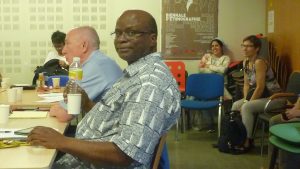Global Studies Meeting – Program 17-19 June 2019
Rencontres Études Globales- Programme 17-19 juin 2019
Suite aux précédentes journées de rencontres en octobre 2017 et en février 2018, l’IRIS Études Globales organise ses dernières journées de rencontres : Global Social sciences and area studies: marriage, divorce or illicit love?
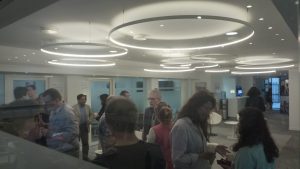
***
Social sciences and area studies seem incompatible only if:
1) we acritically accept standard definition of area studies, based upon language, philology, civilization and a given space.
2) We adopt categories and schemes issued from (western) social sciences without any reflexivity and assuming that they are universally acceptable.
Paradoxically, language and area studies encourage the raise of new “isms” beyond eurocentrism, for example: indo-centrism, sino-centrism, islam-centrism, japan-centrism? New nationalistic histories bring together language and the presumed specificity of an area. At the opposite, global history denies this orientation, but it often re-introduce western notions as universal categories.
In order to escape these limits, we may endeavor two main actions:
1) put language and philology under critical scrutiny, admit their located, not universal, value, and still use them as tools to show the variability and flexibility of areas, not their atemporal definition. We will therefore have critical area studies.
2) global, reflexive social sciences may contribute to re-orient presumed universal categories.
This workshop aims at providing suggestions in order to answer to these two stakes.
***
Aires culturelles et sciences sociales semblent incompatibles entre elles seulement si :
1) Nous acceptons de manière acritique une définition anhistorique des aires culturelles, fondée uniquement sur la langue, la notion de civilisation et un espace donné.
2) Nous adoptons des catégories et des schémas issus des sciences sociales occidentales, les unes et les autres acceptés sans aucune réflexivité et en assumant qu’ils soient universellement valables.
De manière paradoxale, les langues et les aires culturelles encouragent l’émergence d’autres « ismes » à côté de l’européocentrisme, par exemple : indo centrisme, sino centrisme, islamo-centrisme, japano-centrisme. De nouvelles historiographies nationalistes s’appuient en même temps sur la spécificité d’une langue et d’une aire. À l’opposé, l’histoire globale s’oppose à cette démarche, mais elle s’appuie souvent sur des notions occidentales présentées une fois de plus comme des catégories universelles.
Afin d’écarter ces deux écueils, il est possible d’imaginer deux sortes d’opérations :
1) Nous pouvons placer les langues et la philologie sous une démarche réflexive et critique, admettre leur signification historiquement située, et en même temps y avoir recours afin de montrer la flexibilité et variabilité d’une aire, ses interconnections avec d’autres aires, plutôt que leur « spécificité » immuable. A partir de là, il est possible d’identifier des « aires » historiquement situées (critical area studies).
2) En même temps, des sciences sociales véritablement réflexives et globales peuvent contribuer à réorienter des catégories présumées être universelles.
Ces journées d’étude visent à explorer ces pistes, avancer des suggestions permettant de répondre à ces défis.
***
Programme
17 juin, PSL, 60 rue Mazarine, salle du conseil
Accueil Petit-déjeuner
Matinée 9 :30-13 heures
Introduction
Alessandro Stanziani; “area studies and social sciences”
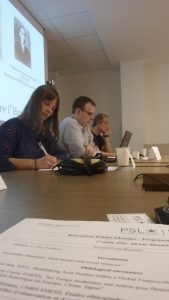
Philological encounters
Tansen Sen, NYU, “Rethinking Area Studies within a Global Framework”
Guillaume Carré, EHESS, « les Temps modernes, une notion pour l’histoire globale ? Réflexions sur la périodisation historique en Europe, Chine, Japon »
Sandrine Ruhlmann, CNRS-EHESS, Études ethnographiques en Mongolie post-communiste ou différentes échelles d’observation et d’analyse : du micro au transnational
–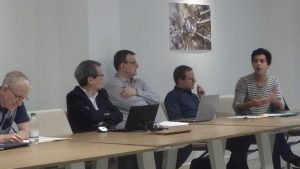
Déjeuner Plateaux-Repas dans la salle
Après-midi 14-18 heures
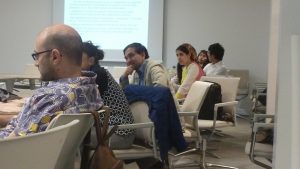
Frontiers and Spaces
William-Gervase Clarence-Smith, SOAS, “Zomia: subverting Central, South, East, & Southeast Asian Area Studies, or a new Area to study?”
Anne-Valérie Schweyer, CNRS-EHESS, “the notion of frontier in south east asia”.
Nicolas Barreyre, EHESS, “the notion of state and the American exceptionalism”
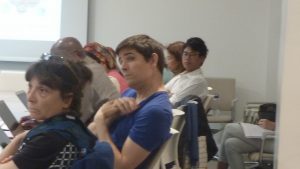
***
18 juin, EHESS, 54 bd Raspail, salle 737
Accueil Petit-déjeuner
Matinée 9 :30-13 heures
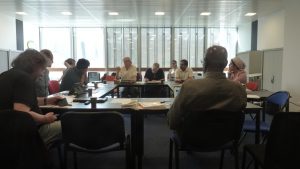
Time and change
Jeremy Adelman, Princeton, “The idea of Dependancy and Latin America – How did Latin American Social Science Shape Global Studies? A Regional History”
Alessandro Stanziani, CNRS-EHESS, “The notion of economic backwardness: a history, 18th– 20th centuries”
Emmanuel Szurek, EHESS, “Turkish Hyper diffusionism in the 1930s, or how Turkish conquered America”
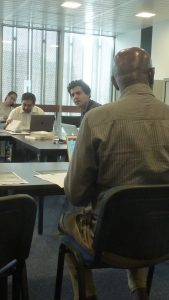
–
Déjeuner à la cantine du 54 bd Raspail
Après-midi 14-18 heures
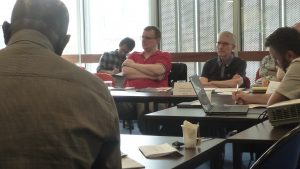
Global labor and area studies
Babacar Fall, Dakar University, “How to bridge Youth Job in West Africa and in global perspective?”
Andreas Eckert, Humboldt University, “Global labor history and area studies – scenes from a marriage”
Sylvain Laurens, EHESS, “Patronat, Bundesverband der industrien or Confederazione? The making of an « european » business representation in Brussels from national traditions of industrialists organizations”
***
19 juin, EHESS, 96 bd Raspail, salle Lombard
Accueil Petit-déjeuner
Matinée 9:30-13 heures
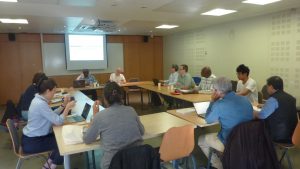
Area studies: what are they?
Rémy Bazenguissa-Ganga, EHESS, « L’Afrique est-elle une aire culturelle pour les Africains ? »
Masashi Haneda, University of Tokyo, “The notion of area studies in Japan – Area Studies in Japanese Style and its Limits”
Aleksandra Kobiljski, CNRS-EHESS, “Japan in the Time of Global History”
–
Déjeuner Plateaux Repas dans le jardin du 96 bd Raspail
Après-midi 14-18 heures
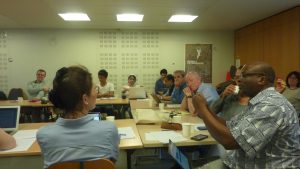
Public sphere: global Habermas or the other way round?
Vincent Azoulay, EHESS, “L’espace public d’Habermas et l’Antiquité : histoire d’un malentendu productif ? ”
Julien Zurbach, ENS, “Is it possible to be global in Antiquity? Some questions from labour and money”
Isabelle Thireau, EHESS, “I am the public! » Putting the concept of « public sphere » at test in contemporary China”
Françoise Daucé, EHESS, “Rethinking civil society from contemporary Russia: a paradox ?”
